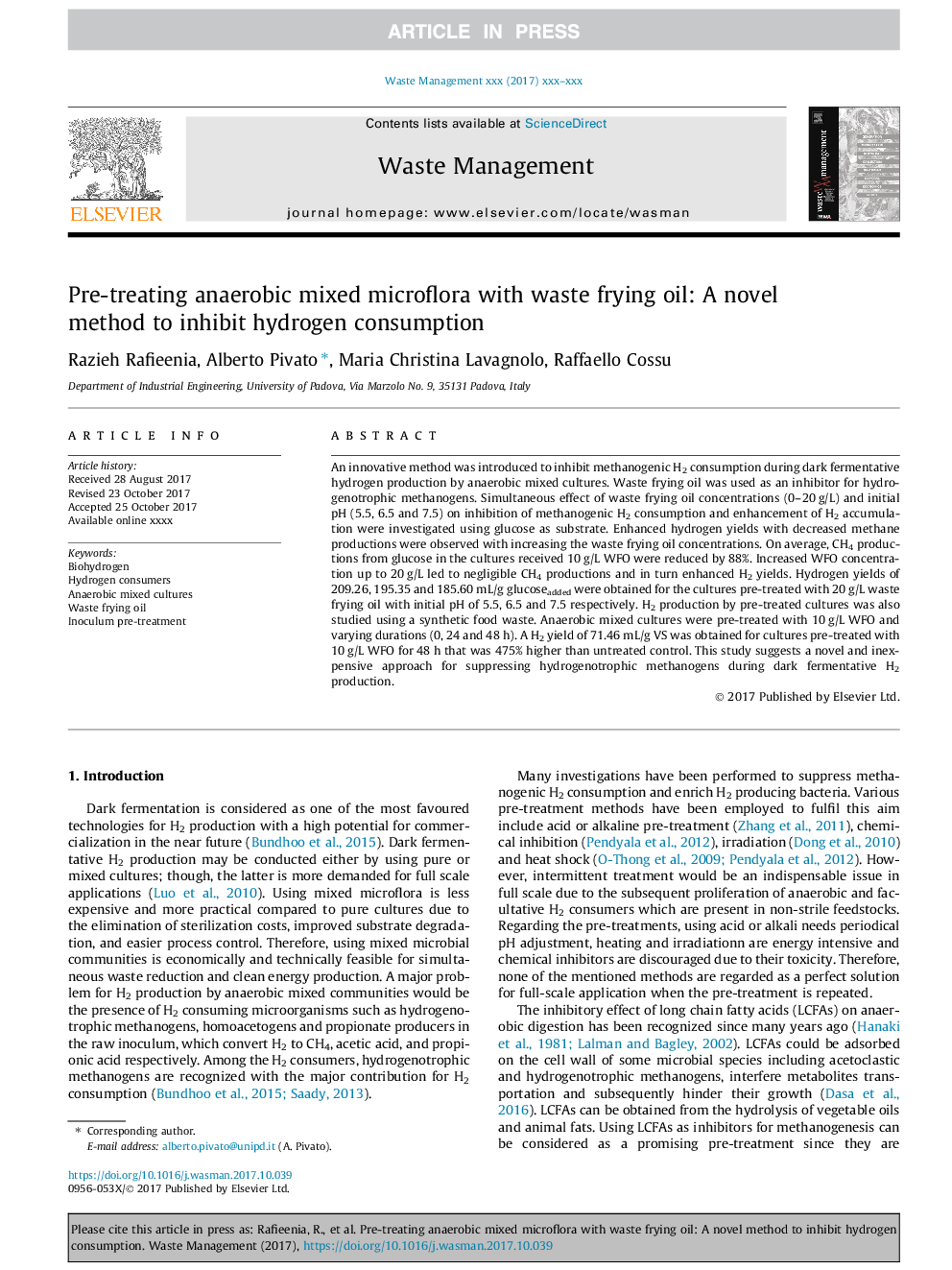| Article ID | Journal | Published Year | Pages | File Type |
|---|---|---|---|---|
| 8870193 | Waste Management | 2018 | 8 Pages |
Abstract
An innovative method was introduced to inhibit methanogenic H2 consumption during dark fermentative hydrogen production by anaerobic mixed cultures. Waste frying oil was used as an inhibitor for hydrogenotrophic methanogens. Simultaneous effect of waste frying oil concentrations (0-20â¯g/L) and initial pH (5.5, 6.5 and 7.5) on inhibition of methanogenic H2 consumption and enhancement of H2 accumulation were investigated using glucose as substrate. Enhanced hydrogen yields with decreased methane productions were observed with increasing the waste frying oil concentrations. On average, CH4 productions from glucose in the cultures received 10â¯g/L WFO were reduced by 88%. Increased WFO concentration up to 20â¯g/L led to negligible CH4 productions and in turn enhanced H2 yields. Hydrogen yields of 209.26, 195.35 and 185.60â¯mL/g glucoseadded were obtained for the cultures pre-treated with 20â¯g/L waste frying oil with initial pH of 5.5, 6.5 and 7.5 respectively. H2 production by pre-treated cultures was also studied using a synthetic food waste. Anaerobic mixed cultures were pre-treated with 10â¯g/L WFO and varying durations (0, 24 and 48â¯h). A H2 yield of 71.46â¯mL/g VS was obtained for cultures pre-treated with 10â¯g/L WFO for 48â¯h that was 475% higher than untreated control. This study suggests a novel and inexpensive approach for suppressing hydrogenotrophic methanogens during dark fermentative H2 production.
Related Topics
Physical Sciences and Engineering
Earth and Planetary Sciences
Geotechnical Engineering and Engineering Geology
Authors
Razieh Rafieenia, Alberto Pivato, Maria Christina Lavagnolo, Raffaello Cossu,
